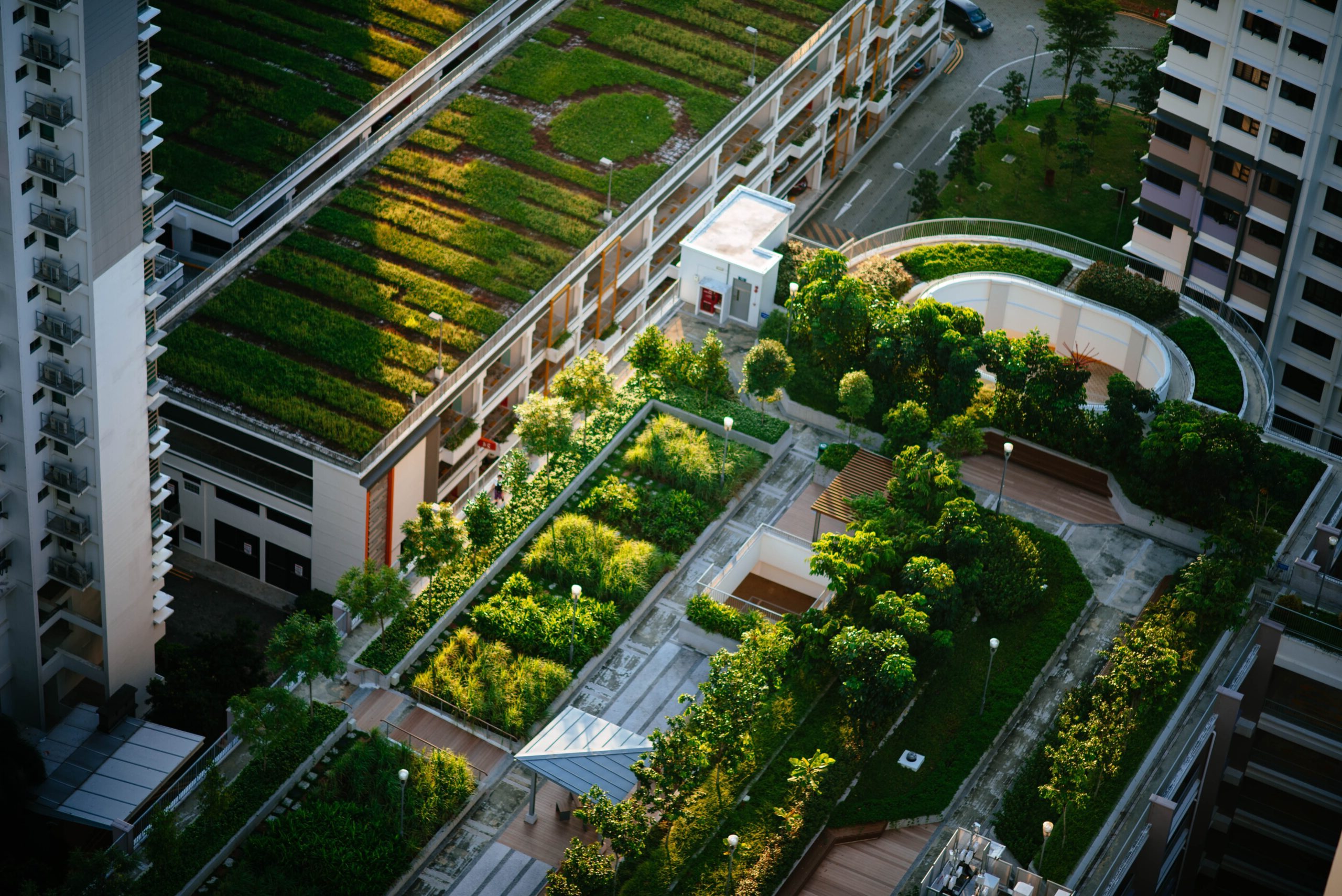
Policy Options
Building Decarbonization
Overview
Decarbonized buildings incorporate energy efficiency upgrades, electrification, and design elements which can drastically lower U.S. energy demand while providing benefits such as cost savings, carbon pollution reduction, and improved indoor air quality. Commercial and residential buildings account for ~13% of U.S. emissions, largely due to burning gas, diesel, or heating oil. States that are proactive about building codes and standards can reduce emissions while creating jobs in retrofitting and weatherization.
Policy Options
‘**’ indicates bipartisan support
Appliance Regulations
- **Colorado H.B.1161 (enacted 2023): requires new gas furnaces and water heaters sold in Colorado to reduce emissions of smog-forming nitrogen dioxide pollution; phases out the sale of mercury-containing fluorescent light bulbs; updates Colorado’s energy and water-saving standards for five products while adding an additional nine products.
- **New Jersey A5160/S3324 (enacted 2022): updated efficiency standards for a set of 17 household and commercial appliances such as light fixtures and shower heads.
- New York S.9405 (enacted 2022): updated the state’s energy building codes to include considerations of climate impact and mitigation strategies; expanded the list of appliances and products that need to meet energy efficiency standards.
Building Codes and Standards
- Maryland SB 528 (enacted 2022): established a Building Energy Performance Standard, requiring large buildings to be net-zero by 2040.
- New York A.3006 (enacted 2023): included a statewide ban on fossil fuels in new buildings (originally introduced as the standalone policy, the “All-Electric Buildings Act”). Learn more here.
- Washington H.B. 1543 (enacted 2025): Amends Washington’s Building Performance Standard including the establishment of energy use intensity targets and alternative metrics for compliance, conditional compliance methods, and an early adoption incentive program for building owners.
Heating
- Vermont S.5 (enacted 2023): creates a performance standard for the heating fuel sector that will reduce climate pollution over time and increase the equitable deployment of cleaner heat options. Learn more here.
- **Texas HB 4370 (enacted 2025): Makes geothermal infrastructure eligible for Public Improvement Projects, allowing utilities, municipalities, and other entities to own and operate geothermal infrastructure and to fund geothermal projects with public bonds.
Retrofits
- **Colorado H.B.1252 (enacted 2023): authorizes the Colorado energy office to award grants for retrofitting existing buildings for installation of a geothermal system for heating and cooling; etc.
- Maryland H.B.0169 (enacted 2023): requires the Department of Housing and Community Development to develop a plan to provide energy efficiency retrofits to all low–income households.
Tax Credits and Incentives
- **Colorado S.B. 182 (enacted 2025): Establishes new standards and tax incentives to encourage the use of building materials and construction practices that significantly reduce embodied carbon emission.
- Colorado H.B.1272 (enacted 2023): creates a new tax credit for heat pump technologies and thermal energy networks; extends the state tax credit for installing energy-efficient home heating, cooling and hot water systems.
- Utah S.B.188 (enacted 2022): expanded opportunities for low-income individuals and families to receive grants that will help cover the cost of replacing wood-burning fireplaces and appliances with energy-efficient ones.
Workforce Development and Just Transition
- Connecticut H.B. 5004 (enacted 2025): Prioritizes job tax rebates for sustainability sectors such as energy efficiency and renewables. Establishes a state Clean Economy Council and tasks the council with creating a plan for transitioning workers out of fossil fuel jobs. Commissions a study on renter utilization of energy efficiency programs.
- Maine L.D. 611 (enacted 2023): Establishes a working group aimed at enhancing eligibility and providing financial assistance for low-income homeowners for energy efficiency programs.
- **New York S.9422(enacted 2022): promoted the development of thermal energy networks throughout the state and provided jobs to transitioning utility workers who have lost or are at risk of losing their employment.
Utility Energy Efficiency Standards
- Michigan SB 273 (enacted 2023): requires utility energy waste reduction programs that serve low‑income households to achieve energy savings at least equal to those of programs for all customers, and mandates that at least 25% of total program spending be allocated to serving low‑income households.
- Minnesota HF 164 (enacted 2021): requires utilities to achieve 2.5% of annual energy savings from retail electric and gas sales. Also required utilities to spend at least 0.2% of their gross operating revenue on cost-saving measures, including energy efficiency for low-income customers.
- Maryland SB 528 (enacted 2022): utilities must achieve incremental gross energy savings of 2% per year for 2022–2024, 2.25% per year in 2025 and 2026, and 2.5% per year in 2027 and thereafter.

Empower State Environmental Champions
Your donation funds the fight for equitable actions that protect the environment and our health.
Donate